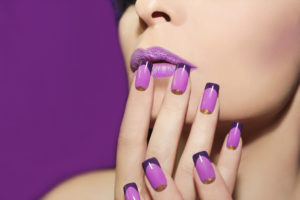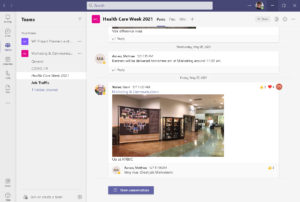Share:
The nail and infection connection
 Got nails? Long, artificial or shellac nails make a striking fashion statement, but they are a harbor for microorganisms. Asante’s dress code and hand hygiene policies prohibit these for employees who provide direct patient care or work in Sterile Processing.
Got nails? Long, artificial or shellac nails make a striking fashion statement, but they are a harbor for microorganisms. Asante’s dress code and hand hygiene policies prohibit these for employees who provide direct patient care or work in Sterile Processing.
Surgical-site infections and bacteremia have been linked to artificial nails in the inpatient setting. These nails are also associated with poor hand hygiene practices and result in more tears to gloves. This means no acrylics, gels, overlays or silk wraps are allowed. It also means no “nail art” or any addition to the nails that changes or interrupts their texture.
Published studies describe epidemiologic investigations that traced health-care-acquired infections to contaminated fingernails. The case investigations described serious infections and deaths in NICUs and cardiac surgery units that were linked to artificial or polished fingernails. One outbreak was traced to a worker’s fingernail that was persistently infected for several years but hidden by polish.
Data from 10 studies on the microbial burden of health care workers’ fingernails suggests that there is a higher bacterial load on artificial nails than on natural nails. Chipped nail polish also poses increased risk compared with recently painted, unchipped nails. Finally, gel-based nail polish may be associated with higher pathogen counts, and handwashing may not be effective for removing bacteria from gel polish.
All employees should keep their nails trimmed and clean, but those with direct patient contact must keep their nails clipped to a quarter-inch or less. If you wear nail polish, make sure it’s freshly applied and intact because organisms can hide where polish is chipped. Newer hybrid polishes, such as shellac or gel polish, are considered acrylics and are not allowed. These are cured under UV or LED light and cannot be immediately removed with nail polish remover.
If you have questions about this policy, email Asante Infection Prevention or message us through Halo.
If you have a question, please contact the author or relevant department directly.



